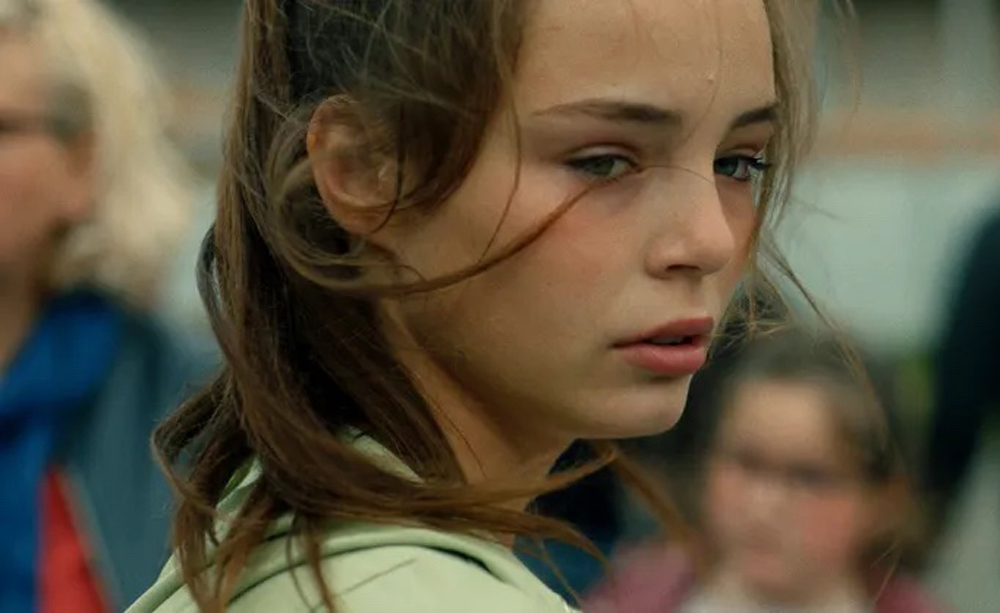Gabriel (Johan Heldenbergh), the director of the fictional film within a film in “Les Pires (The Worst Ones),” is a towering figure, always looming above the rest of the crew in pure height if not stature. He only periodically enters the frame in Lise Akoka and Romane Gueret’s probing drama as he manages a production set in Cité Picasso projects where the less fortunate reside, calling the shots while still hoping that real life will make its way into the picture. If filmmakers are usually lionized for involving nonprofessional actors in their shoots, having their personal experience make up for skill, Akoka and Gueret, along with co-writer Eleonore Gurrey, take a more skeptical approach as Gabriel casts a quartet of kids from the neighborhood to star in his film, a life-changing opportunity perhaps when both money and notoriety aren’t usually around in these parts yet having the equal potential for exploitation when they’re asking so much of their cast with little meaningful to offer in return.
The power imbalance is clear from the moment “Les Pires” begins as the four youths Gabriel comes to cast are all filmed being interviewed for consideration, spilling their guts out – or not, in the case of Maylis (Melina Vanderplancke), a reserved, soft-spoken type who tells the director she’s only there at her brother’s urging. When challenged about what his aims are, Gabriel admits, “I’m looking for kids who haven’t had cheery lives,” not giving Maylis anymore confidence, but not preventing either her, the easily aggravated Ryan (Timeo Mahaut), Jessy (Loic Pech), a 17-year-old who just spent his last three months in prison for a hit-and-run, and Lily (Mallory Wanecque), the oldest and most vivacious of the bunch whose broad smile hides the fact she lost her brother to cancer and is frequently harassed for being thought of as sexually promiscuous, from taking a role in the project.
While Gabriel is exposed for his lack of imagination as his ensemble not only gives over their time to his film but clearly the inspiration for the characters they play, Akoka and Gueret find sharp insights in the imposition of a film shoot on those involved in it, sneaking into a room as Ryan runs lines with his sister Melodie (Angelique Gernez) and unwittingly tapping into considerable pain as he shouts slurs at her intended for his fictional mother – his own mother has a restraining order from them – and the cliques that form at craft services lead to intense bullying for Maylis, who’d rather be at home anyway. The director may be getting what he wants once the cameras roll, doing the most acting of anyone on set when he can be charming or mean to meet the day’s demands, but “Les Pires” asks at what cost without ever being didactic, showing a measured, exacting approach to infuriating behavior akin to Kitty Green’s “The Assistant.”
One hopes – and suspects, given the sensitivity they show in the narrative – that Akoka and Gueret didn’t engage in such tactics to get the performances they did from their cast, but establish the reality that Gabriel chases so hard and turn even the production’s most casual requests like an actor changing position on set into revelations about what an unforgiving process it can be. Although cinema has long been lauded as a place one can step into someone else’s shoes, it rarely considers what it can take away from a person and a community that is only represented by their least fortunate members and “Les Pires” evolves into an incredible addition to the canon by focusing on that subtraction.
“Les Pires (The Worst Ones)” will screen again at Cannes on May 23rd at the Debussy Theatre at 8:30 am and the Cineum Aurore at 2:30 pm and May 24th at the Cineum Screen X at noon.




